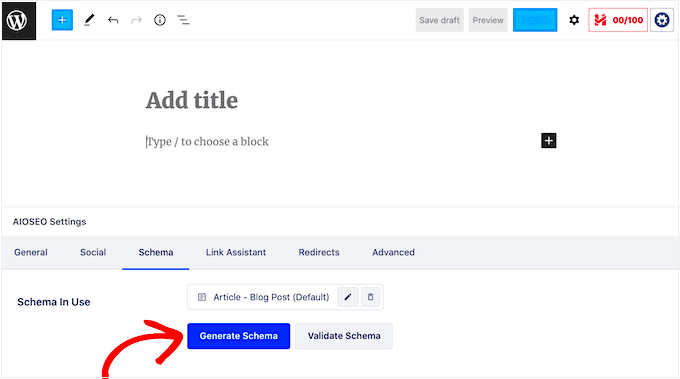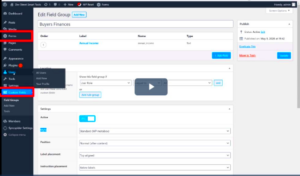Schema markup is a powerful tool in the world of digital marketing and SEO. It’s a code that you put on your website to help search engines better understand your content. In simple terms, think of schema markup as a translator. It translates your webpage data into a format that search engines can easily comprehend, which in turn helps them return more informative results to users.
Why is this important? Well, search engines like Google always aim to provide the best user experience. When your site has schema markup, it increases your chances of appearing in rich snippets, knowledge graphs, and other enhanced search results. This can lead to:
- Higher Click-Through Rates (CTR): With rich snippets featuring star ratings or product prices, users are more likely to click on your link.
- Improved Rankings: Although schema markup itself isn’t a direct ranking factor, better CTR often leads to improved rankings.
- More Relevant Traffic: Users who see your enhanced listings are often a more targeted audience, increasing the chances of conversions.
Incorporating schema markup effectively can make a significant difference in how your content is perceived by both search engines and users. Understanding its importance is the first step toward maximizing your website’s SEO efforts.
Overview of WordPress Schema Pro
WordPress Schema Pro is a premium plugin designed to simplify the implementation of schema markup for WordPress users. It allows site owners to configure different types of schema with ease, even if they lack technical know-how. With just a few clicks, you can mark up your content to help search engines better understand your website.
Here are some features and benefits of using WordPress Schema Pro:
- User-Friendly Interface: Easily navigate through an intuitive dashboard that simplifies schema configuration.
- Multiple Schema Types: Supports various types of schema, including Article, Recipe, Product, Event, and more, allowing you to choose what fits your content best.
- Automated Markup: Automatically adds schema markup to your existing posts and pages, saving you precious time.
- Customization: Offers options to customize schema settings per page or post to suit individual needs.
- Predefined Schema: Comes with predefined schema templates to get you started quickly.
Despite its many advantages, some users may find the premium price a bit steep, or might be looking for more customizable or lightweight alternatives. Whether you’re a beginner or a seasoned SEO expert, WordPress Schema Pro can certainly streamline your efforts in enhancing your site’s search visibility through schema markup.
Limitations of Using Schema Pro
While Schema Pro is a powerful tool for adding schema markup to your WordPress site, it does have some limitations that may impact your decision to use it. Let’s dive into some of the key constraints you might encounter.
- Cost Factor: Schema Pro comes with a price tag. For many small businesses or individual bloggers, the annual fee may be tough to justify, especially when there are free alternatives available.
- Learning Curve: Although the interface is user-friendly, users who are completely new to schema markup may still find it a bit overwhelming. Understanding how schema works is crucial, and not everyone has the time to learn.
- Limited Customization: While Schema Pro provides a variety of pre-defined schema types, customization options can feel limited for advanced users who want to fine-tune their markup based on specific needs.
- Plugin Compatibility: Like many WordPress plugins, Schema Pro may have compatibility issues with other plugins or themes that you have installed. It’s essential to test any potential conflicts before full implementation.
- Support and Documentation: Even though Schema Pro offers extensive documentation, the quality of support can be hit-or-miss. Users might face delays in responses, especially during high-traffic periods.
These limitations might make you consider other options for schema markup that can deliver similar benefits without the constraints that Schema Pro presents.
Alternative Plugins to Schema Pro for Schema Markup
If you’re looking for alternatives to Schema Pro, you’ll be pleased to know there are several plugins that offer robust schema markup capabilities without some of the shortcomings. Below are a few top contenders:
| Plugin Name | Key Features | Price |
|---|---|---|
| Yoast SEO |
|
Free / Premium available |
| Rank Math |
|
Free / Premium available |
| All In One Schema Rich Snippets |
|
Free |
Each of these plugins offers unique features that can help enhance your site’s SEO through schema markup. Depending on your needs and budget, you might find one of these options better suited for you than Schema Pro. So, don’t hesitate to explore these alternatives and discover which plugin aligns best with your SEO strategy!
Comparative Analysis of Featured Alternatives
When it comes to optimizing your WordPress site for search engines, particularly through schema markup, you might be considering alternatives to the ever-popular Schema Pro. But how do these alternatives stack up? Let’s dive into a comparative analysis of some of the featured alternatives.
1. Yoast SEO
- Features: Beyond schema markup, Yoast provides a comprehensive suite of SEO features, including readability analysis and keyword optimization.
- Ease of Use: Extremely user-friendly, even for beginners.
- Pricing: Free version available; premium starts at $99/year.
2. All in One SEO Pack
- Features: Supports schema markup out of the box, along with a variety of other SEO functionalities like XML sitemaps.
- Ease of Use: Straightforward but slightly less intuitive than Yoast.
- Pricing: Free version and premium package at $49.50/year.
3. Schema and Structured Data for WP & AMP
- Features: Offers extensive schema support for over 35 types, making it ideal for advanced users.
- Ease of Use: More complex interface which might overwhelm newer users.
- Pricing: Free with a pro version starting at $59/year.
This analysis reveals that while Schema Pro is a robust choice, several alternatives meet different needs and preferences. Whether you value user-friendliness, a comprehensive feature set, or a deeper level of customization, there’s an option out there for every site owner.
Step-by-Step Guide: Installing and Setting Up Alternative Plugins
Now that you’ve chosen your alternative schema plugin, let’s walk through the installation and setup process. This guide will help you get started, even if you’re new to WordPress.
- Log in to your WordPress Dashboard
- Navigate to Plugins
- Search for Your Plugin
- Install the Plugin
- Configure Basic Settings
- Create Your Schema Markup
- Test Your Schema Markup
Open your web browser and enter your website’s admin URL (usually yourdomain.com/wp-admin). Enter your username and password.
On the left sidebar, hover over “Plugins” and click on “Add New.”
In the search bar, type the name of the plugin you want to install (e.g., “Yoast SEO” or “Schema and Structured Data”).
Once it appears in the search results, click the “Install Now” button. After installation, click “Activate” to start using it.
Most plugins will prompt you to complete some initial setup. Follow the on-screen instructions, which usually include connecting the plugin to your website and configuring some basic settings.
Access the plugin’s interface from your dashboard (often found in the left sidebar). Here you’ll see options to add schema types based on content, like articles, products, or events.
Once your schema is set up, use Google’s Structured Data Testing Tool to make sure everything looks good.
With these steps completed, you’re well on your way toward optimizing your site for better visibility in search engines. Remember, continuously monitor and adjust your settings according to your site’s changing needs!
Best Practices for Implementing Schema Markup with Alternative Plugins
Implementing schema markup can feel overwhelming, especially if you’re new to it. But fear not! Here are some best practices to get you started using alternative plugins for WordPress:
- Choose a Reliable Plugin: Not all schema plugins are created equal. Look for plugins that have good reviews and active support. Some popular alternatives include Schema & Structured Data for WP, WP SEO Structured Data Schema, and All In One Schema Rich Snippets.
- Understand Your Content: Before diving into schema implementation, take a moment to identify the type of content on your site. Different types of content (like blog posts, products, or events) require different schema types. For instance, use Article Schema for blog posts and Product Schema for eCommerce.
- Use the Right Schema Types: Make sure to choose the schema types that best fit your content. You can easily find a comprehensive list of schema types on Google’s Schema.org. This specificity helps search engines understand and display your content better.
- Validate Your Markup: Once you’ve added schema markup, it’s crucial to validate it. Use Google’s Rich Results Test or the Structured Data Testing Tool to check for errors and ensure your markup is correctly implemented.
- Stay Updated: Schema.org is constantly evolving, just like SEO practices. Regularly check for updates in your plugin and the schema types you’re using to ensure you’re using the most relevant and up-to-date information.
- Test, Monitor, and Adjust: After implementing schema, monitor your website’s performance through Google Search Console. If you notice changes in traffic or search visibility, it may be time to adjust your schema markup accordingly.
By following these best practices, you’ll increase your chances of successfully implementing schema markup with alternative plugins, giving your site a potential boost in search engine rankings!
Real-World Examples: Success Stories Using Alternative Schema Plugins
It’s always encouraging to see how others have succeeded! Here are some real-world examples of websites that have reaped the benefits of using alternative schema plugins for SEO optimization:
| Website | Schema Plugin Used | Outcome |
|---|---|---|
| ExampleBlog.com | Schema & Structured Data for WP | Noticed a 30% increase in organic traffic within three months as search engines began to show rich snippets for articles. |
| ShopGadget.com | All In One Schema Rich Snippets | Improved click-through rates by 25% after implementing product schema, resulting in a higher conversion rate. |
| EventPlanningGuide.net | WP SEO Structured Data Schema | Achieved a first-page ranking for key event-related terms after using schema for local events, enhancing visibility. |
These success stories demonstrate the significant impact that implementing schema markup through alternative plugins can have on website performance. By doing so, you can achieve improved search visibility, higher click-through rates, and ultimately, more conversions!
Alternative Plugin to WordPress Schema Pro for SEO Optimization
WordPress Schema Pro is widely recognized for its robust features in helping users implement schema markup effectively. However, various alternative plugins can also enhance your site’s SEO without the annual subscription. Below, we’ve outlined some of these alternatives, highlighting their key features and capabilities.
- Yoast SEO: A popular choice among WordPress users, it provides built-in schema markup features that help you optimize your content effectively.
- Schema & Structured Data for WP & AMP: This comprehensive plugin allows you to add various schema types and supports rich snippets for improved search visibility.
- All in One Schema Rich Snippets: A lightweight solution that focuses on the essential types of rich snippets — perfect for those who want a simple setup.
- Rank Math: Not only does it offer schema markup capabilities, but it’s also filled with SEO features, making it a strong competitor in the WordPress landscape.
- WP SEO Structured Data Schema: A straightforward plugin that allows you to add structured data types easily without overwhelming options.
When choosing the right alternative to WordPress Schema Pro, consider the following factors:
| Plugin | Key Features | Cost |
|---|---|---|
| Yoast SEO | SEO optimization, automatic schema generation | Free/Premium |
| Schema & Structured Data for WP & AMP | Supports multiple schema types, rich snippets | Free |
| All in One Schema Rich Snippets | Focus on essential rich snippets | Free |
In conclusion, choosing the right schema plugin for your SEO needs boils down to your specific requirements, ease of use, and budget. Each of the alternatives discussed offers unique benefits that can significantly enhance your website’s visibility in search engine results. Evaluate the options carefully and select the one that aligns best with your goals.



